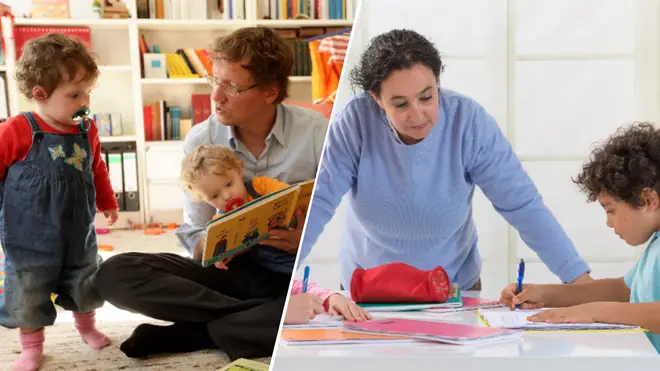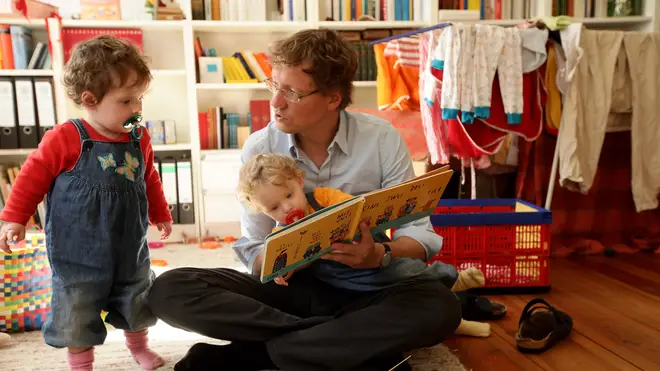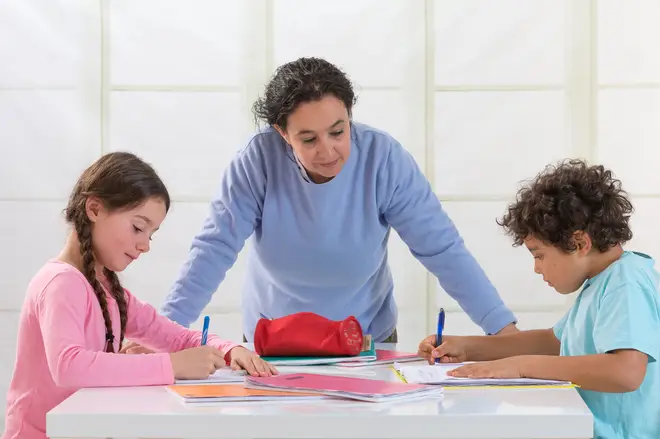Top parenting trends of 2020 revealed – from 'period parties' to micro-scheduling
1 January 2020, 14:01 | Updated: 1 January 2020, 14:05

From reducing the family's carbon footprint to encouraging child activism, here are nine progressive trends expected to rule the next year.
Plastic-free living, period parties, scrapping telly for computer games and micro-managing every minute of the day are among the top parenting trends for 2020, according to channelmum.com.
New research conducted by the site has revealed environmental issues are set to have a huge influence on family dynamics in the next decade.
Recycling, reducing the carbon footprint and taking action against climate change will have a hard-hitting impact on the way young people are brought up, the study claims.
The parenting site asked around 2,000 UK parents how they believe family life is expected to shift in the future, with many raising the same points.

Enviro-conscious parenting
Perhaps the most popular trend of them all has been labelled the 'Greta Effect' in honour of teen activist Greta Thunberg, who has tirelessly campaigned to raise awareness of climate change in recent years.
The study claimed her incredible impact throughout the world has started to encourage more young people to speak out about issues they care about, causing a generation of child activists.
"Activism has been turned on its head and instead of listening to adults, children are becoming increasingly vocal about causes they believe in.
"2020 will see more youngsters defying convention to teach adults, such as the recent climate strikes," the research organisers said.
Read more: Charlotte and William top popular baby name charts for past 50 years
Plastic-free living
A handful of mums and dads surveyed said it was "time for child power", meaning they plan to listen to their offspring's concerns about mental health and eco-issues then alter how they parent.
"Wooden toys are no longer enough," the site explained. "The top eco-trend is to remove all family plastic, from nappies to bathing products to clothing and buggies.
"It can be expensive and difficult to do but with 93 per cent of families trying to use less plastic, brands are beginning to respond with the right products."
Downsizing families
The royals are expected to spark a wave of smaller families in the next decade after Prince Harry and Meghan Markle announced they were only having two kids in the hope of having a more positive impact on the environment.
The website explained: "Harry and Meghan generated headlines around the world by announcing they will stop at two children to help save the planet, but the Anti-Natalist movement is pressing people to volunteer to stop having kids at all."
Switching TV for games
The site's research found that 47 per cent of parents plan to ditch the telly in favour of all-player game nights.
The website said: "British teenagers spend an average of 12 hours a week gaming while eight to 10-year-olds game for 10 hours.
"The old tradition of sitting down to watch TV together is increasingly being replaced by a multi-player, bonding family gaming session."
Co-working nurseries
With the rise in flexible working and freelancing mothers in recent years, the site believes nurseries will become co-working hubs in which parents can catch up on their emails and watch their kids at the same time.
"ONS figures show eight in 10 mothers now work and since the 2008 downturn, 58 per cent of the newly self-employed have been female," said the site.
"Co-working spaces like Cuckooz Nest and Mama Works are responding to demand by providing offices where mothers can meet, network and share childcare in a very modern 'mum village'."

Period parties
As period poverty continues to appear in the news, parents are more conscious of how to approach puberty with their kids – which is why some are deciding to celebrate their child's first menstrual cycle with a party.
The site said: "To eliminate the stigma around periods, UK parents have begun to adopt the US 'period party' phenomenon - compete with red-themed food and drink - to celebrate their daughter's first period.
"Backers say it's a new 'coming of age' celebration which helps put periods in a positive light."
Back-to-basics pregnancy
"No scans, no painkillers and minimal medical appointments, will be one of the biggest trends to happen," says channelmum.com.
"The trend is gaining ground with eco-mothers wanting to get right back to nature."
Micro-scheduling
This process is all about planning every second of the day into a super-organised schedule.
It's the latest trend among parents to stay organised and on top of chores.
The site wrote out an example, saying: "8am dishwasher goes on, 8.05am write shopping list, 8.10am check emails before school run while kids pack their bags: an increasing number of modern mothers tightly plan their entire day minute-by-minute to cram in everything.
"Downloadable micro-scheduling templates are now available online. However, some psychologists have warned the trend is 'self-bullying' and can damage children's creativity by limiting free play."
Mindful moments
Channelmum.com wrote: "A fitting trend for 2020, parents are setting aside 20 minutes every day to simply sit with their children and listen to them.
"This mindful antidote to a busy world lets children know their feelings are important and validated, and brings families closer together."






















